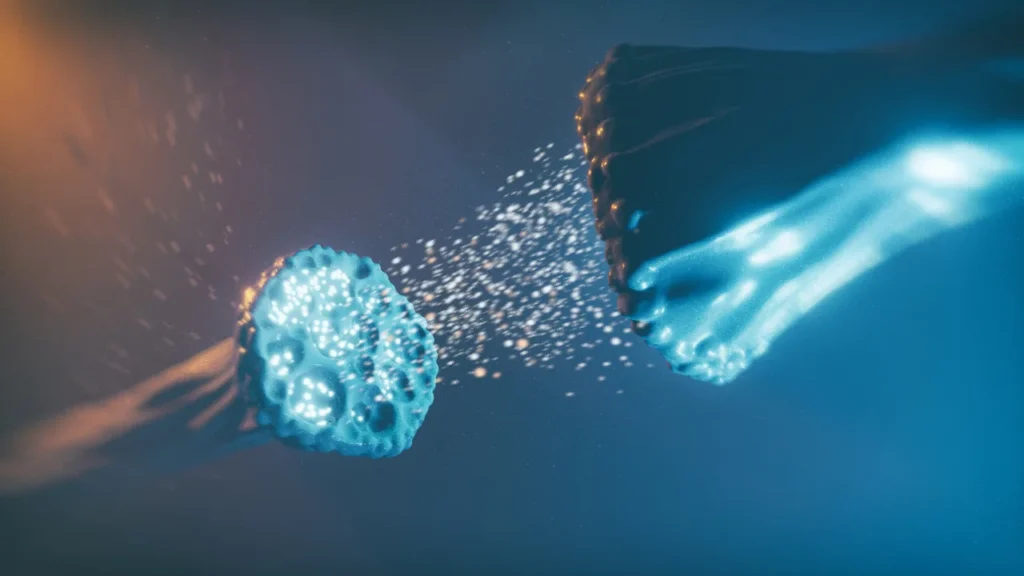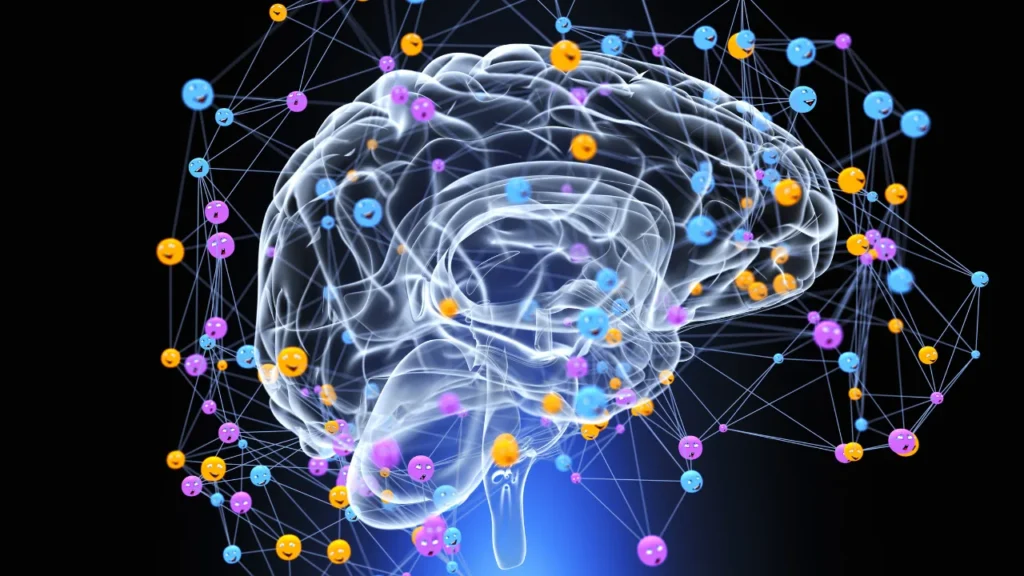Peyote (Lophophora williamsii) is a small, spineless cactus native to the deserts of Mexico and the southwestern United States. Traditionally, it has been used for centuries by indigenous peoples in spiritual and healing rituals, primarily because of its psychoactive properties. The active compound in peyote is mescaline, a naturally occurring psychedelic alkaloid. While peyote is best known for its hallucinogenic effects, recent interest has grown around its potential nootropic effects—cognitive-enhancing properties that might aid mental clarity, focus, and mood. This article explores the sources, chemistry, physiological mechanisms, potential benefits, dosage guidelines, safety concerns, and interactions associated with peyote, with a focus on its possible nootropic applications.
You May Also Like:
Horbaach Lion’s Mane Mushroom Extract Reviews: A Leading Herbal Nootropic Product
Peyote: Potential Nootropic Benefits, Dosage, Side Effects, Interactions, and Other Important Information About This Supplement is an original (NootropicsPlanet) article.
Source of Peyote
Peyote is a slow-growing cactus that thrives in arid regions, particularly in the Chihuahuan Desert of Mexico and Texas. It grows close to the ground and has a distinct round, button-like appearance. The psychoactive effects of peyote are due to its alkaloid content, with mescaline being the most potent and well-studied compound.
- Natural Sources: Peyote is primarily found in the wild and is considered a sacred plant in various Native American cultures. Its use in spiritual rituals has been legally protected under certain religious freedoms in the United States.
- Commercial Availability: Due to its psychoactive properties, peyote is classified as a Schedule I controlled substance in many countries, including the United States. This makes the cultivation, possession, and distribution of peyote illegal for most people, except in specific religious contexts. However, synthetic mescaline, the active ingredient in peyote, can sometimes be found and studied under controlled conditions.
Discover the Key to Better Brain Function with Potassium Supplements—Buy Now on Amazon!

Chemistry of Peyote
Peyote contains over 60 different alkaloids, but its main active compound is mescaline. Mescaline is a phenethylamine, a class of compounds that includes both neurotransmitters and psychoactive substances. The chemical structure of mescaline resembles that of dopamine, a neurotransmitter associated with pleasure and reward, which may explain some of its effects on mood and cognition.
- Mescaline (3,4,5-trimethoxyphenethylamine): This is the primary psychoactive alkaloid in peyote. Mescaline’s structure allows it to interact with serotonin receptors, particularly the 5-HT2A receptor, which plays a significant role in mood regulation, perception, and cognition. By binding to these receptors, mescaline can induce alterations in perception, thought, and mood.
- Other Alkaloids: Besides mescaline, peyote contains a variety of other alkaloids, such as anhalonidine, pellotine, and anhalonine, which may contribute to its overall psychoactive profile. However, these compounds are present in much smaller quantities and are less understood.

Physiological Mechanisms of Peyote in the Body and Brain
The psychoactive and potential nootropic effects of peyote are primarily due to its interaction with the central nervous system, particularly through its modulation of neurotransmitters. Mescaline’s effects on the brain stem from its ability to bind to serotonin receptors, influencing various aspects of perception, cognition, and mood.
- Serotonin Receptor Modulation: Mescaline is a partial agonist at the 5-HT2A receptor, a subtype of serotonin receptor. This interaction alters the usual activity of serotonin, leading to changes in mood, cognition, and sensory perception. The same receptor is also targeted by other psychedelic substances like psilocybin (from magic mushrooms) and LSD. While the primary effect is hallucinogenic, the modulation of this receptor may also contribute to improved mood, enhanced focus, and creative thinking.
- Enhanced Cognitive Flexibility: Research on psychedelic compounds, including mescaline, suggests that they can enhance cognitive flexibility—the ability to adapt thoughts and behaviors in response to changing environments. This is achieved by disrupting established patterns of neural activity and encouraging new connections, which can lead to novel thoughts and perspectives.
- Dopamine and Norepinephrine Activity: Mescaline also influences dopamine and norepinephrine pathways. This effect can lead to increased alertness, heightened focus, and enhanced mood, potentially making peyote a tool for those seeking cognitive enhancement, albeit with significant psychoactive effects.
Support Your Natural Sleep Cycle and Wellness with Sleep Supplements—Buy Now on Amazon!
Nootropic Benefits of Peyote
While peyote is predominantly known for its psychedelic effects, there is growing interest in its potential cognitive benefits, especially in controlled microdoses. Although the research is still in its early stages, the following are some possible nootropic benefits:
- Enhanced Creativity and Problem-Solving: Mescaline’s ability to disrupt normal neural pathways and promote new patterns of thinking could lead to increased creativity. Users have reported gaining new insights and problem-solving abilities under the influence of peyote, suggesting that it could be a tool for cognitive flexibility and innovation.
- Mood Elevation and Reduced Anxiety: Through its modulation of serotonin receptors, mescaline can lead to mood enhancement and a reduction in anxiety. While not a conventional mood stabilizer, this effect might help users approach challenges with a more positive mindset, indirectly aiding cognitive performance.
- Increased Focus and Mental Clarity: Although mescaline is psychoactive at higher doses, anecdotal reports suggest that very small (sub-hallucinogenic) doses of peyote might enhance focus and mental clarity. This practice, known as microdosing, has gained popularity among individuals looking to improve concentration and creativity without the intense effects of a full dose.
- Spiritual Insight and Cognitive Reframing: For many, the use of peyote facilitates deep introspection and altered states of consciousness, which can lead to lasting changes in perspective. This kind of cognitive reframing may benefit those seeking new ways of thinking or overcoming mental blocks.
- Potential Neuroprotective Effects: Emerging studies suggest that compounds which activate serotonin receptors, including mescaline, may have neuroprotective effects. This could mean that mescaline not only enhances cognition temporarily but might also help protect the brain from age-related decline.

Dosage and Supplementation Guidelines
The use of peyote, especially as a nootropic, is complex due to its legal status and powerful psychoactive effects. Therefore, understanding appropriate dosing is crucial for safety and efficacy.
- Traditional Doses: In traditional settings, peyote is often consumed in doses ranging from 200-500 mg of mescaline, which can induce a profound, introspective, and hallucinogenic experience lasting 8-12 hours. This is not recommended for casual use, especially for those seeking nootropic effects.
- Microdosing: For potential cognitive benefits without intense psychoactive effects, some advocate microdosing—taking sub-perceptual doses. A microdose typically ranges from 10-30 mg of mescaline, which is about 1/20th to 1/10th of a full psychedelic dose. This is thought to provide mood-enhancing and focus-enhancing effects without hallucinations, though research is limited, and safety has not been conclusively established.
- Supplement Forms: Given legal restrictions, mescaline is not widely available as a supplement. However, synthetic mescaline can be obtained for research purposes in some jurisdictions. Individuals considering this should adhere to strict dosage guidelines and consult with a professional.
Enhance Restful Sleep and Improve Cognitive Function with Magnesium Glycinate—Buy Now on Amazon!

Side Effects and Safety
Peyote, particularly due to its active component, mescaline, can cause a range of side effects, especially at higher doses. While microdosing appears to be safer, the lack of robust scientific research makes it crucial to proceed with caution.
- Hallucinations and Altered Perceptions: At traditional doses, peyote can cause intense visual and auditory hallucinations, distortions of time and space, and deep introspective experiences. These effects can be disorienting and are not conducive to typical daily functioning.
- Physical Side Effects: Common physical effects include nausea, vomiting (often considered part of the purgative process in traditional use), increased heart rate, dizziness, and muscle weakness. These side effects may persist for the duration of the psychedelic experience.
- Psychological Risks: Individuals with a history of mental health disorders, particularly psychosis or schizophrenia, should avoid peyote, as mescaline may exacerbate symptoms. The psychological effects can be unpredictable, and users may experience anxiety, paranoia, or confusion.
Interactions with Other Supplements and Medications
The interaction of peyote with other substances can have significant implications, particularly because mescaline influences neurotransmitter systems.
- Antidepressants and SSRIs: Since mescaline acts on serotonin receptors, combining it with selective serotonin reuptake inhibitors (SSRIs) or other antidepressants could lead to serotonin syndrome, a potentially life-threatening condition characterized by agitation, rapid heart rate, and increased body temperature. Users should avoid combining peyote with any serotonergic drugs.
- MAO Inhibitors: Monoamine oxidase inhibitors (MAOIs) can amplify the effects of mescaline, which might lead to dangerous increases in blood pressure and exaggerated psychological effects. Combining peyote with MAOIs should be strictly avoided.
- Stimulants and Other Psychedelics: Taking mescaline with stimulants (like amphetamines) or other psychedelics (such as LSD or psilocybin) can lead to unpredictable and intense psychological experiences. The combination can overwhelm the body’s ability to process stimuli, leading to negative outcomes like panic attacks.
- Nootropics: The combination of peyote with other cognitive-enhancing supplements, like caffeine or racetams, is not well studied. While microdoses of mescaline might be used to enhance focus, adding other stimulants could lead to overstimulation, anxiety, or physical discomfort.
Risks for Individuals with Certain Health Conditions
The use of peyote, especially at psychoactive doses, may not be safe for everyone. Particular health conditions may increase the risks associated with its consumption:
- Cardiovascular Conditions: Mescaline can increase heart rate and blood pressure. Individuals with heart disease, hypertension, or other cardiovascular conditions should avoid peyote, as it can place additional strain on the heart.
- Mental Health Disorders: Those with a history of mental health disorders, such as bipolar disorder, schizophrenia, or severe anxiety, should exercise extreme caution. Mescaline can induce intense psychological experiences that may trigger or exacerbate mental health issues.
- Liver or Kidney Disorders: The metabolism of mescaline involves the liver, and its excretion is through the kidneys. Individuals with impaired liver or kidney function should avoid using peyote, as their bodies may struggle to process and clear the substance.
Promote Digestive Wellness and Cognitive Focus with Magnesium Supplements—Order Today on Amazon!

Conclusion:
Should You Consider Peyote as a Nootropic?
Peyote’s active compound, mescaline, interacts with the brain in ways that can lead to altered perception, mood enhancement, and potentially enhanced cognitive flexibility. While there is anecdotal evidence suggesting benefits from microdosing, there is currently insufficient scientific research to recommend peyote as a conventional nootropic. Additionally, the legal and safety considerations surrounding its use make it a complex supplement to navigate.
For those interested in the nootropic potential of peyote, it is essential to approach it with caution, understanding the full scope of its effects, legal implications, and potential health risks. Consultation with a healthcare provider, especially for those with existing medical conditions or who are on medication, is strongly advised. As research continues to explore the benefits of psychedelics for mental health, a clearer picture may emerge regarding how peyote might be safely and effectively used for cognitive enhancement.

References:
- Peyote – Uses, Side Effects, and More. Retrieved from: https://www.webmd.com/vitamins/ai/ingredientmono-473/peyote
- What to know about peyote. Retrieved from: https://www.medicalnewstoday.com/articles/peyote
- Pharmacokinetic and Pharmacodynamic Aspects of Peyote and Mescaline: Clinical and Forensic Repercussions. Retrieved from: https://pmc.ncbi.nlm.nih.gov/articles/PMC6864602/
Important Note: The information contained in this article is for general informational purposes only, and should not be construed as health or medical advice, nor is it intended to diagnose, prevent, treat, or cure any disease or health condition. Before embarking on any diet, fitness regimen, or program of nutritional supplementation, it is advisable to consult your healthcare professional in order to determine its safety and probable efficacy in terms of your individual state of health.
Regarding Nutritional Supplements Or Other Non-Prescription Health Products: If any nutritional supplements or other non-prescription health products are mentioned in the foregoing article, any claims or statements made about them have not been evaluated by the U.S. Food and Drug Administration, and such nutritional supplements or other health products are not intended to diagnose, treat, cure, or prevent any disease.


